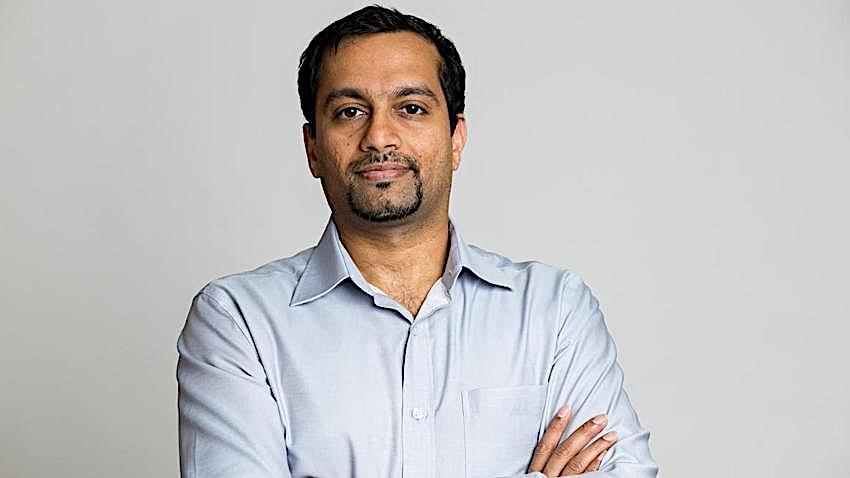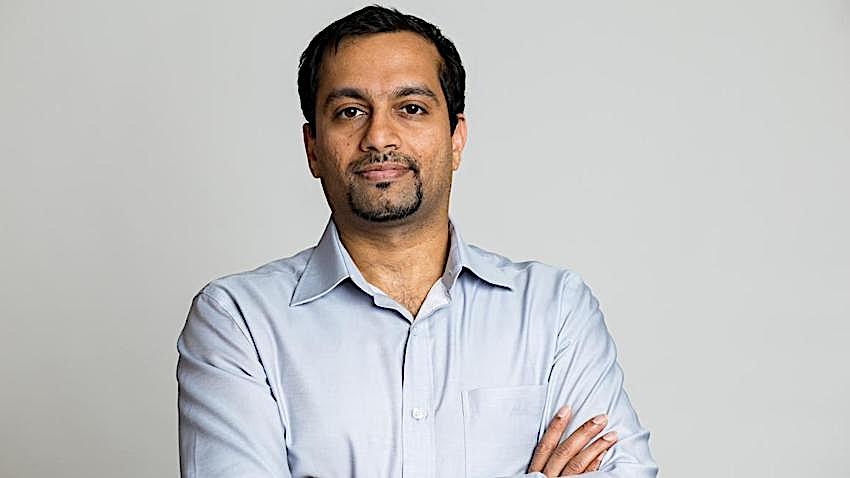
When a Voice Isn’t Real: Georgia Tech Alum Innovates Deepfake Detection for a New Era of Fraud
In 2024, a finance worker in Hong Kong was duped into attending a meeting with four co-workers – or so he thought. What he didn’t know was that all four were scammers, using deep-fake video to deceive him. In the end, he wired them $25 million.
“We used to get about one deepfake a month at the beginning of 2023,” said Vijay Balasubramaniyan (PhD CS 2011), CEO and co-founder of Pindrop Security. “Now we’re seeing seven deep-fake attacks per customer every day.”
Balasubramaniyan founded his business in 2011, based on research he did as a Ph.D. student with his advisor, Mustaque Ahamad. Initially, the focus was on detecting deception in voice calls, with banks being the primary customers.
Then two events happened—first, the pandemic. Suddenly, doing business over the phone became more popular than in-person, and the demand for Pindrop’s services grew in healthcare, retail, and beyond.
Second, generative artificial intelligence. Seemingly overnight, almost anyone could use AI to imitate nearly anyone else.
“That has been by far the biggest tailwind for Pindrop,” Balasubramaniyan said. “Everything requires strong identification and strong security.”
The company built its first deepfake protection product eight years ago and has been building on it ever since.
Pindrop recently raised $100 million from investors to expand its deepfake video detection business. The company’s next product is a system for detecting deepfakes in live video conference meetings. It will allow businesses to avoid the scenario faced by the finance worker in Hong Kong, as well as others.
“Am I hiring the right candidate?” Balasubramaniyan said. “Or is this person I’m interviewing not who they said they are? I was surprised, but that’s our biggest use case.”
Deepfake detection
How does a machine tell the difference between a real person and a fake, even when a human can’t?
“Humans pattern-match a lot,” Balasubramaniyan said. “We always look for familiarity in a noisy world. It’s easy to fool a human.”
Pindrop’s products don’t look for similarities, though. They hunt for differences. A voice call, for example, provides 16,000 samples per second for the programs to analyze.
“We’re able to pick up so many variances,” Balasubramaniyan said, “and there are so many places for these generative AI systems to make a mistake.”
Pindrop can not only identify fraudulent voice calls, but also which system was used to create them.
“I’ve been surprised by how fast hackers have started using deepfakes in their operations,” Balasubramaniyan said. He gave the example of a fraud that the companies follow, a man named Williams.
“Williams is a guy out of West Africa,” he said. “For the longest time, he’d employ 12 different people, and all day they would dial for dollars.
“We started seeing Williams replace each of those 12 people with a large language model combined with a text-to-speech system. Now that AI has full-blown conversations with people, they can’t tell the difference. And the bots don’t sleep – they work 24 hours.”
Roots at Tech
Because Balasubramaniyan’s company grew out of his Ph.D. research, he has remained connected to the GT Computing community. He still regularly talks to faculty, especially Ahamad, who has a stake in Pindrop.
“Vijay’s Ph.D. research was of the highest quality, and the Pindrop paper was published in one of the top-tier security conferences,” said Ahamad, professor and interim chair of the School of Cybersecurity and Privacy.
“However, because of his work experience before coming to Georgia Tech, he also focused on the real-world relevance of his research, which led to the launch of Pindrop Security. He is a great example of impactful research that students conduct in our laboratories.”
Balasubramaniyan says he likes to hire fellow alumni.
“Georgia Tech is a great school for our research teams to hire from,” he said.
He and his wife have also endowed a scholarship at Tech. Both are immigrants, and “we want to help other people who have big dreams and small pockets.”
“A lot of these folks, we talk to them, we tell them what we see in the market, we open our networks to them. We’re very fortunate that Georgia Tech allows us to participate in such a meaningful way.”
He thinks Tech is better at generating great talent than many other programs, precisely because it isn’t in Silicon Valley.
“Because we sit here in the South and Atlanta, the ideas we come up with aren’t the latest fad. They’re rooted in great science or great tech. We’re naturally great thinkers because we aren’t fad-chasers.”


